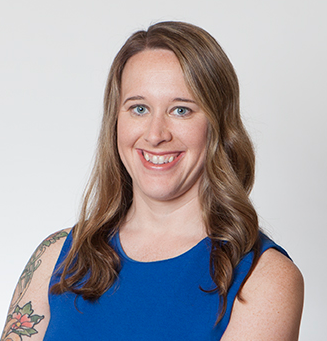
How Pratt Standard Cocktail Company is bringing the joy of cocktailing to consumersHow Pratt Standard Cocktail Company is bringing the joy of cocktailing to consumers
Pratt Standard Cocktail Company, maker of craft cocktail syrups, was named a Rising Star at Natural Products Expo West 2021 Virtual Pitch Slam.

As the daughter of a caterer and smoked seafood business owners, Tory Pratt grew up around the food industry. Instead of an allowance, her mom would give her a spoonful of mystery food, and if she could identify all the ingredients she would get $5. By the time Pratt graduated from Georgetown University, she knew she wanted to start a food or beverage business at some point in her life.
In 2014 Pratt bought a bottle of craft gin and questioned why she would pair high-fructose corn syrup-laden tonic water on top of a craft gin. She figured there had to be a way tonic was made before high-fructose corn syrup and synthetic quinine. So, she delved into the history of tonic water, and 47 recipe iterations later True Tonic Syrup was born. Since then, her company, Pratt Standard Cocktail Company, has launched 11 craft cocktail syrups.
Pratt was awarded the Rising Star designation at the Natural Products Expo West 2021 Virtual Pitch Slam. Here, she shares what it was like to compete and where she sees her company headed in a post-pandemic, back-to-bars world.
What are three words that describe your brand?
Tory Pratt: "Joy of cocktailing."
Tell me a bit about how you incorporate classes to educate your consumers and what that brings to the company.
TP: I realized a few years ago that the beauty of products like ours is that they're ingredients, not finished ready-to-drink products. For many people, that would be considered a setback. For me, that means our customers can use our product to create something that they feel complete ownership and pride over. We just make it easy for people. The best cocktails can be made in under 30 seconds with just three ingredients, which is something most bartenders don't want home consumers to know. So educating our customers and teaching cocktail classes is all about giving our customers the toolset to be successful home bartenders and demystifying the art of mixology.
Tell me about the partnership with Whole Foods Market and your seasonal line. How did that come to be?
TP: The Whole Foods Mid-Atlantic Regional Specialty Team came to us in 2019, having seen our in-person public-facing cocktail classes in the D.C. area, and said they wanted help training their bar staff. The partnership grew from training and designing a bar program and co-branded cocktail menu for Whole Foods in their new flagship location in Tyson's corner to 16 locations across the Mid-Atlantic. The programs were paused during the pandemic, but despite that we still managed to sell significant volume with Whole Foods last year, in no small part due to the willingness of Whole Foods to stand by their local, small suppliers in challenging times. We're looking forward to working with Whole Foods as they reopen their pubs this year.
How has the pandemic affected your business and how do you expect it to change as the world reopens?
TP: Before COVID-19, we had all the elements in place to make the business work—a functioning e-commerce strategy, being well-ranked on Amazon Prime, placement in Whole Foods, a co-designed bar program with Whole Foods across the Mid-Atlantic, and a weird little side business of in-person cocktail classes that just barely broke even. And then all of a sudden, the whole world wanted to take cocktail classes online because they miss bars and they want to make cocktails at home. I can’t even begin to fathom the dumb luck this was for Pratt Standard. Our business nearly tripled in size last year, which I am conflicted about because a yearlong international crisis is what made that happen.
Post-pandemic, I expect much of our corporate virtual cocktail classes to continue as workforces remain remote. I also deeply believe that the pandemic just accelerated an already-existing trend in the market—at-home cocktailing. Of course, people will go back to bars. But I also think people, now that they know how to make a good cocktail at home, will shy away from $15 per drink prices when they could spend $30 on a bottle of Tito's and our syrup and make 16 of those drinks at home and they'll taste just as good. Going out to bars will be more about getting great service and being in a different environment, not necessarily the quality of the drink.
Which channel are you seeing the most growth and where do you see your company in the next three years?
TP: All of our channels grew significantly last year, but the most promise comes from our website sales. We saw a 20-fold increase in sales on our website last year. The metrics we get from our website sales are so comprehensive and actionable that investing in growing that channel gets me really excited. I think all channels feed on each other, though, so we're simultaneously building our wholesale and starting to target the on-premise market that we've put little effort into to date.
In three years, I hope that we have significant wholesale distribution across the U.S., a thriving online business, a large, dedicated customer base of expert home cocktailers, and that we've started to push into international markets like the U.K. and Europe.
What was some good advice you received from the judges or a question that got you thinking?
TP: The questions about velocity always fascinate me, mostly because in an omnichannel business tracking velocity is so much more complicated than in a business that just focuses on retail. A customer that finds our product in a cocktail class might buy it from our website afterward, which we can track, or they might buy it from Whole Foods, or they might get a cocktail out at a bar with it or they might recommend their workplace take the class (all of which we can't directly track). Velocity in an omnichannel business is about seeing the connections and paths that your customers take to product discovery, adoption and repurchase, which is way more complex than someone buys your product from Whole Foods, goes home, uses it, goes back the next week and buys it again.
What's one piece of advice you'd offer to other brands that are pitching at events such as Expo West?
TP: Do whatever you can to stand out. I made a cocktail while pitching to show people how easy it is to use our products, and it helped us stand out. A pretty deck isn't as important as being unique. Most people won't remember the details of your pitch, but if you do something unique, show enthusiasm, and show you have mastery over your business metrics, you'll go far.
About the Author
You May Also Like





